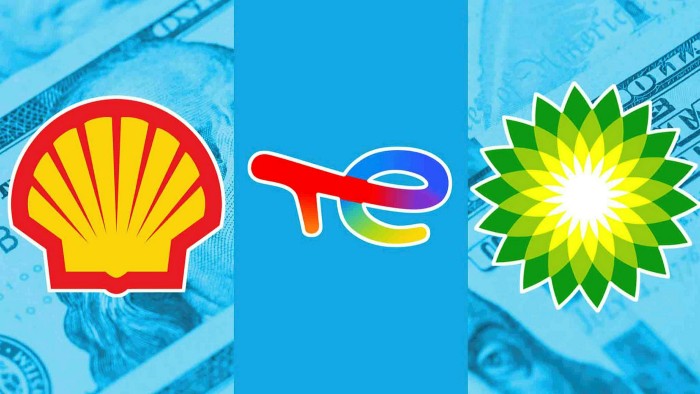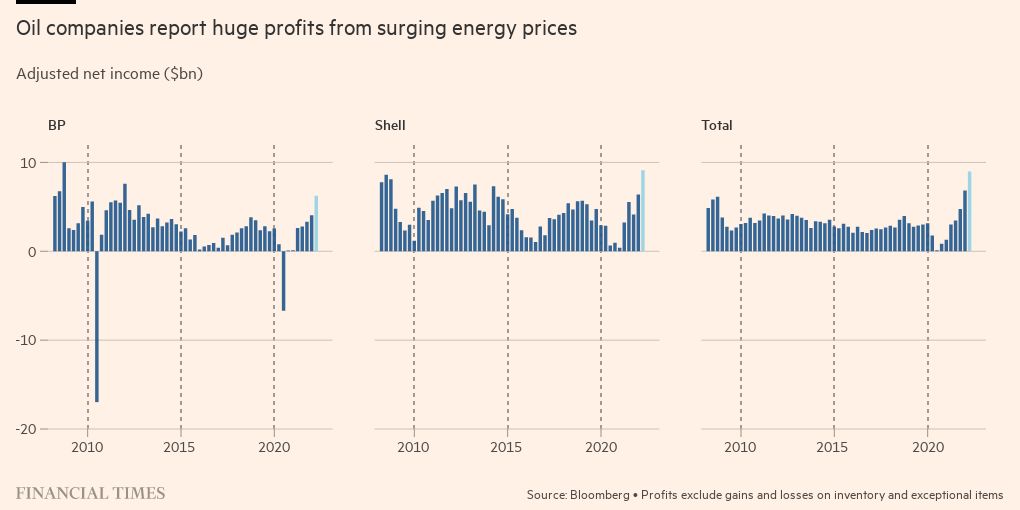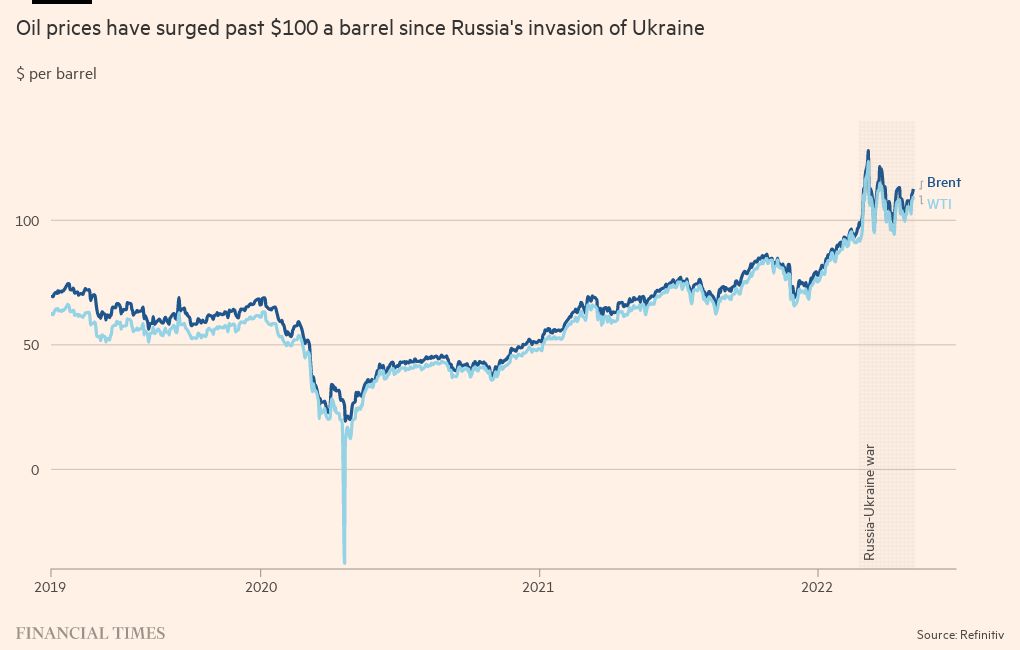Trade secrets: oil majors keep quiet on a key profit driver

Simply sign up to the Oil & Gas industry myFT Digest -- delivered directly to your inbox.
As Europe’s biggest energy companies reported record profits for the first three months of the year, each singled out different parts of their business for praise. But there was one constant: trading.
BP’s highest quarterly earnings since 2008 were driven by “exceptional oil and gas trading”. TotalEnergies noted the “outperformance” of its oil trading activities and the “very good performance” of its gas and electricity dealers. At Shell, “higher trading and optimisation margins for gas and power, due to exceptional market environment”, resulted in the highest quarterly profit on record.
But beyond these qualitative statements none of the three provided any further breakdown of the financial performance of their various trading units or their contribution to overall group profits.
The companies say the traders are integrated into different parts of the business, making it difficult to strip out their performance. BP’s oil trading profits, for example, are attributed to the customers and products division, where the unit that refines and trades oil reported earnings before interest, taxes, depreciation and amortisation of $2.03bn.
The trading teams, however, are not only placing the company’s production with customers. They also buy and sell third-party volumes of oil, gas and other commodities for profit, making them significant revenue generators in their own right.
“BP, Shell and Total have an edge and it is unique to these three companies,” said Oswald Clint at Bernstein, adding that the US oil majors and other international oil companies had struggled to replicate that kind of trading capability.
The last time BP published a breakdown of trading revenue in its annual results was in 2005, when its profits from oil, gas and power dealing reached $2.97bn.
By comparing the delta between the revenues BP would have generated from selling its own production with the reported earnings for its different divisions, Clint calculates BP could have made as much as $1.2bn from gas trading and $400mn from oil trading in the first quarter.
Such returns can make traders among an oil company’s best paid staff. BP’s lead oil trader for West Africa was paid a $3.75mn bonus after his team of four traders made a profit of $72mn in 2016, according to court filings from a current employment tribunal.
Shell, the world’s largest trader of liquefied natural gas, produced 8mn tonnes of the fuel in the first three months of this year but sold 18.3mn tonnes. Prices for LNG cargoes have soared as European efforts to reduce dependence on piped gas from Russia have increased competition.
Chief financial officer Sinead Gorman was reluctant to disclose exactly how much its LNG traders had made. “Our trading results were quite strong in liquefied natural gas, as one would expect with the market,” she said after its earnings were published last week.

“We’ve also seen very strong trading results with respect to our refining and products,” she said, adding that the $500mn in earnings generated by renewables and energy solutions was supported by “the strong ability of our trading portfolio being able to bring gas into Europe where it is needed most.”
Despite the common perception that commodity traders profit by taking bets on price, the companies generally insist they do not take speculative positions.
“It’s certainly not luck, because if we rely on luck to run the business that means we can have bad luck as well,” BP chief executive Bernard Looney told the Financial Times. “The trading business’s first job is to make sure that molecules flow around the world and one of the things that’s been hugely challenging for the energy system today is the redirection of energy flows.”
Upheaval resulting from the war in Ukraine and the growing isolation of Russia, the world’s biggest energy exporter, has stoked unprecedented volatility in commodity markets that has highlighted the need for the companies that keep commodities flowing, Looney said. “The role for a company like BP has never been clearer.”
It is not just the oil majors that are making bumper profits from trading. Glencore said last month its trading business was set for another strong year as it cashes in on the wild price swings and supply disruptions caused by the invasion of Ukraine.
Based on its performance in the first three months of the year, the FTSE 100 company expects earnings from its marketing unit to be “comfortably” above the top end of its guidance range of $2.2bn-$3.2bn.
If achieved, that would make it the third straight year the unit, a big trader of industrial metals and coal as well as oil, has exceeded its forecast profits.
Glencore’s performance suggests the big privately owned commodity traders — a group that includes Vitol, Trafigura, Mercuria and Gunvor — are also likely to score big profits this year. Speaking at the FT Commodities Global Summit in March, Trafigura executive chair Jeremy Weir said 2022 had “the potential to be a significant year again”.
Some of the privately owned traders provide greater transparency on their trading activities than either Shell or BP. These details come in the reports they publish for holders of their bonds, which are publicly listed. Gunvor’s recently published annual update weighed in at 84 pages.
But trading is not without risk. As the middlemen of the global economy, linking the suppliers of raw materials — often in developing countries — with consumers, their activities have drawn scrutiny from international prosecutors. Vitol and Gunvor have both settled oil trading corruption cases in the past two years, while Trafigura is facing a probe in Brazil and Glencore is under investigation in the UK, US and Brazil.
In March, more than two weeks into the war in Ukraine, Shell chief executive Ben van Beurden had to apologise after Shell traders acquired a heavily discounted cargo of Russian crude to supply one of its refineries. Like most of its peers, the company has now said it will not trade any more Russian products and will not renew long-term supply contracts once they expire.
Commodity analysts are predicting continued volatility as changing geopolitics reshape trade flows, and the energy system shifts to include more renewable power. In that new world, getting trading right and learning how to communicate that success to investors will be increasingly important, particularly as BP, Shell and Total build out their renewables businesses, said Bernstein’s Clint.
“It’s unique, it’s an edge and it deserves to be better valued,” he said. “The big question I have is, can they translate those skills, built up over the last two decades trading molecules, into trading electrons?”


Comments